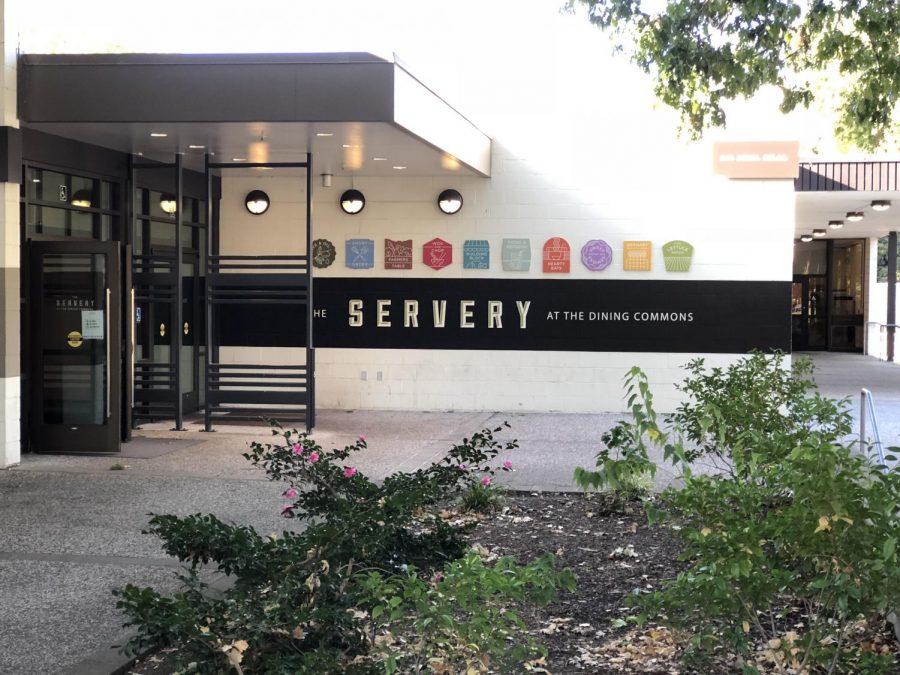ASI researching free meal program using UEI eateries excess
Current plan is to package the excess food and make it available at the Food Pantry
The entrance to the Servery at the Dining Commons at Sac State. A possible program through ASI and UEI could mean that excess food from The Servery and other UEI eateries would be available at the Food Pantry.
October 10, 2019
Associated Students, Inc. and University Enterprises, Inc. are planning to implement a new program on campus to help fight against food insecurity among Sacramento State students.
One of ASI’s “strategic priorities” for the 2019-2020 school year is to assess the feasibility of doing a program in the style of Epicure Extras that would include the Dining Commons and the many other eateries owned by UEI on campus.
Epicure Extras works through the Sac State app and alerts students when Epicure catering events have extra food. Denisse Garcia, vice president of Finance for ASI, said that ASI’s hypothetical Epicure Extras-style program would include daily meals for students through the ASI Food Pantry and that the meals would fit into the current Food Pantry point system.
Garcia also said there would be no need for notifications like those with Epicure Extras on the Sac State mobile app.
RELATED: ASI Food Pantry University Union location to serve more students
“We do want to eliminate food waste as much as possible and we realize that the Dining Commons and (other) eateries are constantly throwing away food as part of the process and as well as safety regulations,” Garcia said. “We’re looking into, instead of throwing the food away from the Dining Commons, having them packed in individual packages and taken to the Food Pantry and given to students on a daily basis.”
According to Alex Aguilar, a Dining Commons worker, food is commonly disposed of after two hours of being heated or exposed, due to health code regulations.
“I think it’s better to make good use of it instead of throwing it all away,” Aguilar said of the food.
Joshua Flores, a film major, said that the current Epicure Extras system is great for students facing food insecurity, but the notifications are erratic and unreliable. He said that a free meal option that is stable would help him as a student.
“If it’s accessible to me then I’m there,” Flores said. “That’s good quality food.”
Garcia said that the program is still in a research phase, and that some of the obstacles the program faces are financial costs of packaging, storage and additional staff for the program, as well as strict health code criteria.
Garcia also said that, as the program moves forward, there are plans to purchase an additional fridge for the food pantry in anticipation of the service.

































































































































